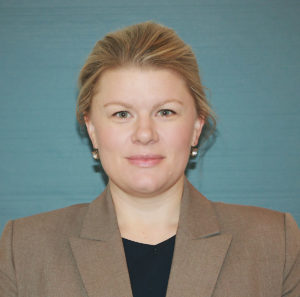MAHNOMEN — Assistant Attorney General Sarah Gillaspey of the Minnesota Attorney General’s Office was on hand at the Fall Conference in October, and she shared the leading ways for nonprofit corporations to get investigated:
• Misuse of nonprofit assets.
• Related-party transactions.
• An absent or detached board of directors.
• “Founder’s syndrome.”
• Manipulation of the financial information reported to the state.
• Certain types of “gift in kind” transactions.
• Questionable accounting practices.
She said it is popular in the country these days to raise funds to support veterans, but there are some groups claiming to help veterans but do not. She wanted all Legion members to watch for fakery in their communities.
“If it sounds too good to be true, report that to our office,” she said.
Gillaspey provided a room of American Legion members with best legal practices for their posts.
She said nonprofits aren’t required to have bylaws but bylaws show sound oversight. She recommended bylaws be a “breathing, living document” that provide procedures and operations.
Two types of nonprofit corporations must register with the Attorney General’s Office: soliciting charitable organizations (soliciting contributions in excess of $25,000 in Minnesota) and charitable trusts (with gross assets of $25,000 or more at any time during the year).
The charitable trusts typically have a charitable purpose and meet the IRS 501(c)(3) status, she said, and, under state law, they must provide the Minnesota Attorney General’s Office in St. Paul with dissolutions, mergers, consolidations, conversations and transfers of all or substantially all assets.
“The money we raise,” she told an audience of American Legion members, “should not go to lawyers. It should go to causes.”
Gillaspey said state law calls on board members to discharge duties in good faith, in a manner he or she believes in the best interest of the nonprofit and with the care “an ordinarily prudent person” would use in the same situation.
Nonprofit corporations are expected to keep records for six years, and she said any member or director can inspect the records at any time. Not in the middle of the night, but, of course, “a reasonable time.”
